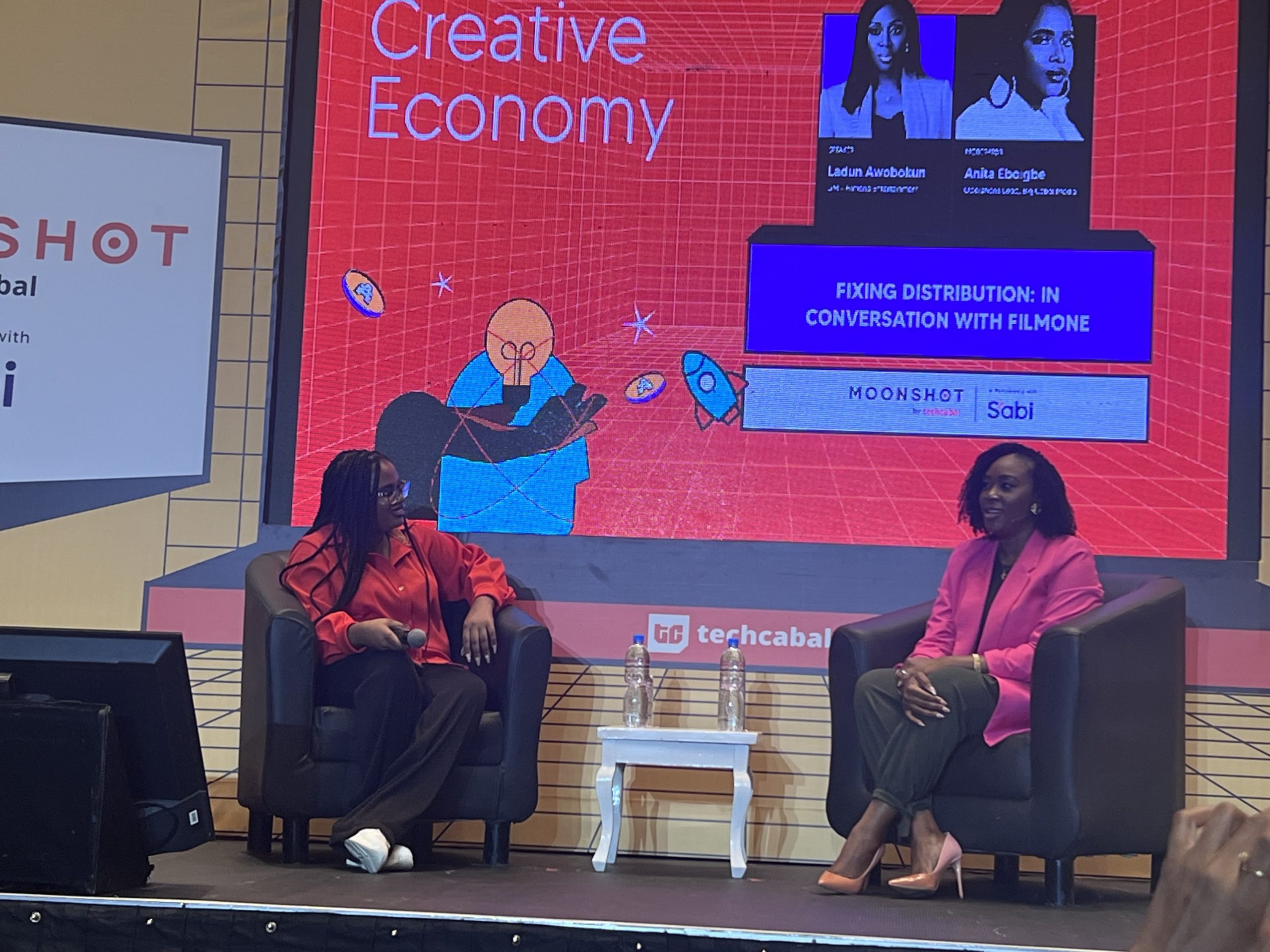Written by Stephen Agwaibor
General manager of FilmOne Entertainment, Ladun Awobokun, believes technology has provided transparency of numbers in Nollywood. Still, Nollywood has much work to do to boost cinema attendance.
The general manager of FilmOne Entertainment, Ladun Awobokun, has hailed the role of technology in bringing about what she calls a “transparency of numbers” in Nollywood.
Speaking at a fireside chat at the Moonshot Conference hosted by TechCabal, Awobokun noted that “A lot of tech has been used in Nollywood to simplify the way we do things. One which we’re most proud about, which has made our industry grow, is the transparency of numbers,” she said.
Awobokun highlighted Comscore, the global media measurement and analytics firm that provides data and analytics to evaluate media across platforms. The company had in 2019 announced that it was expanding into West and Southern Africa. It now partners with the Cinema Exhibitors Association of Nigeria (CEAN) to provide weekly performances of movies at the box office. The use of analytics to track the data of cinephiles has had a profound impact on Nollywood, informing how movie producers decide on the kind of movies they put out. Awobokun also added that technology has helped filmmakers confirm and track payments.
Despite these, Awobokun says technology can improve to create accessible options for filmmakers. “Cinema screens are expensive, sometimes between $30,000 and $70,000. It would be nice if someone came in with alternatives that are accessible for us,” she said.
The evolution of Nollywood
Awobokun disclosed that the industry had evolved over the last decade, particularly with respect to film quality and career development. The global appeal of Nollywood movies, such as The Black Book and Gangs of Lagos, speak to this, which she says informs why more international cinemas are coming to Nigeria to set up shop. These early successes are also creating a pipeline where local filmmakers go overseas to acquire skills to improve local content. “Nollywood is here to stay,“ Awobokun said. “It is now an industry where people can have full careers in areas like scriptwriting, unlike before.”
Improving cinema attendance
Despite the strides, Awobokun expressed some concern. She highlighted issues regarding cinema operations in Nigeria. “Let me give you a few numbers. Between January and September, in the cinema industry, over ₦4.8 billion [was spent], but there were only 1.6 million admissions. Lagos alone has 20 million people, yet there were only 1.6 million filmgoers in Nigeria for nine months.”
Awobokun says the low numbers in cinema attendance affect how moviemakers invest. “Cinema owners looking at these numbers will find them sobering,” she said.
Through a trial-and-error approach, filmmakers learn the ropes of what kind of movies do well and how to market them. Awobokun said she knows from experience not to put out sombre movies during holiday seasons as they tend to perform poorly. Ultimately, she noted, “Investment in filmmaking isn’t an emotional decision; it’s a business one.”


















